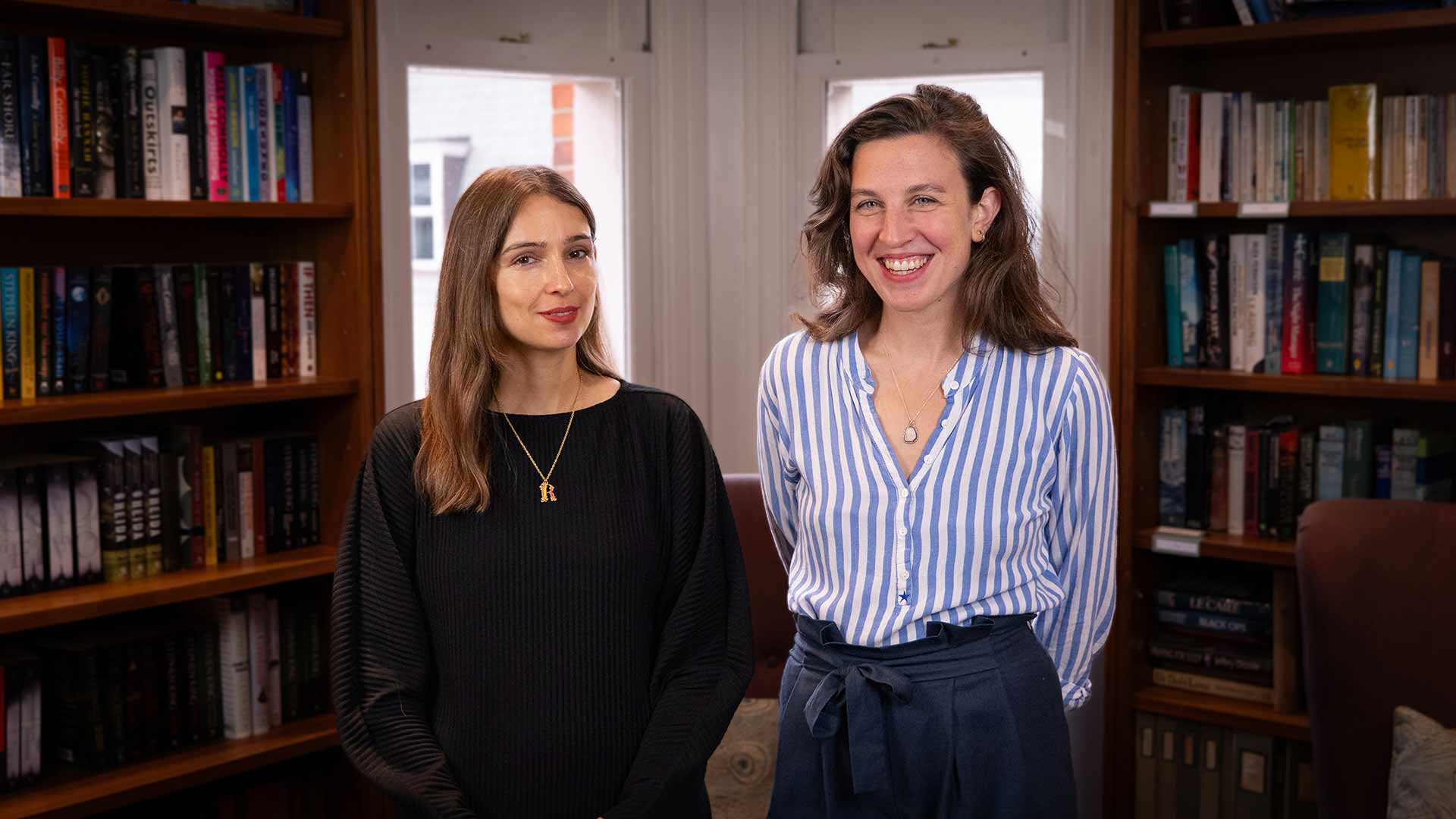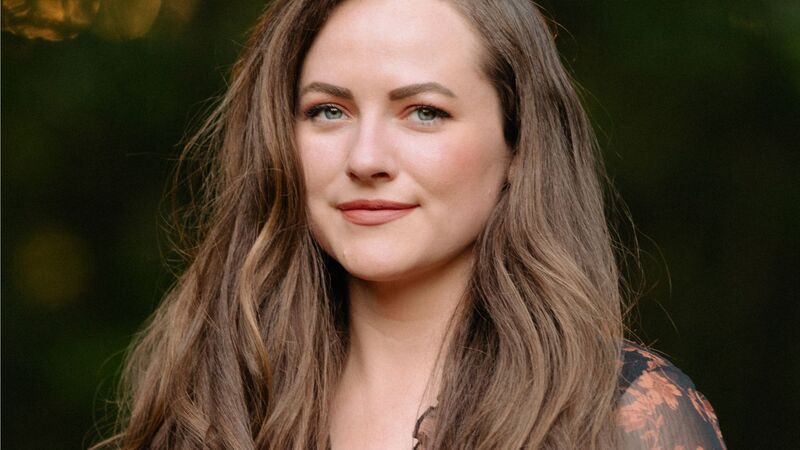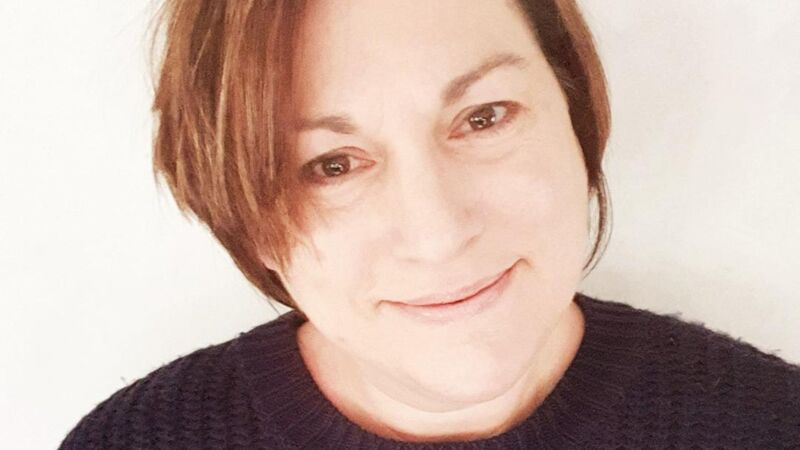Hodder Press: careful curation of non-fiction list remains the key to solid growth
Under the focused stewardship of Kirty Topiwala and Anna Baty, Hodder Press’ plan for further success remains the continued championing of specialists

Tom Tivnan is the managing editor of The Bookseller.
Though Hodder & Stoughton unveiled its new narrative non-fiction list, Hodder Press, last year, its genesis goes back to 2021, when executive publisher Kirty Topiwala and editorial director Anna Baty published Vaxxers by Professor Sarah Gilbert and Dr Catherine Green. Released just nine months after its acquisition, the inside story of making the Oxford AstraZeneca vaccine became an acclaimed bestseller. “It was an exciting title for us to work on by two women writing serious non-fiction,” says Baty, and it proved to be a catalyst too. “We had a lot of success with that, and we thought ‘we could be doing more of these types of books’ and started thinking about having a dedicated space for them.”
Pitched as a highly selective list of expert-led non-fiction from distinctive voices, Hodder Press’ launch titles hit bookshelves earlier this year. The first of these, Why We Die: The New Science of Ageing and the Quest for Immortality by Nobel Prize-winning biologist Venki Ramakrishnan, is currently shortlisted for the Royal Society Trivedi Science Book Prize. When it comes to commissioning, Topiwala is drawing on her time working for the medical charity Wellcome—where she pivoted its book publishing into a trade-facing list and directed the Wellcome Book Prize—in terms of proactively approaching experts about writing for the press, as well as receiving submissions through the usual channels. She says: “That’s something we’ve done a lot of on Hodder Press; being very collaborative and really having that partnership with authors and agents.”
One such case is the story behind Michael Morpurgo’s Spring, publishing on 20th March 2025, his first non-fiction book for adults in nearly 40 years. The start of a loose series focusing on the seasons (the other three books will be released over the next couple of years and already have yet-to-be-announced big names attached to them), it came about when Topiwala pitched the project to his agent. “You start with the idea, and then it just snowballs into something so much bigger,” she says. “It’s turned out to be this lovely week-by-week diary of the season changing and what he’s observing. It’s incredibly charming and joyful.”
Historically, there’s probably been the perception that it’s men who read these serious books, and we know that’s not the case
Similarly, next spring’s The Age of Diagnosis by Susan O’Sullivan, publishing on 17th April, originated from Topiwala following the Wellcome Prize-winning neurologist’s career for years and waiting for the right concept. “I really wanted to work with her, so I tested out a few different ideas. I planted the kernel of a book about diagnosis, but what she’s turned it into is well beyond the limits of my imagination.”
The latter title is a prime example of one of Hodder Press’ key principles—improving the representation of female writers in serious non-fiction. Topiwala states: “It is unbelievable that in 2024 I think there is still this perception that an expert is a man. We’ve been excited
to see the work that the Women’s Prize for Non-Fiction has been doing, and we know from their research that women are less likely to get prize and press attention. At Hodder Press, we’re really passionate about trying to redress that balance.” She continues: “It’s about readers as well. Historically, there’s probably been the perception that it’s men who read these serious books, and we just know that’s not the case.” Though this year’s list is equally split in terms of the gender of authors, 2025’s is “ever so slightly a majority female list”, which Baty deems “unusual, looking at our competitors”.
Topiwala goes on to say: “It is actually unusual to have two women running an imprint like this, and inevitably, we’re led by our own passions and interests.” As such, the list has ended up “splitting quite clearly into science and big ideas, history, and nature”. International titles are also “a huge growth area”, with Topiwala expanding: “We know these kinds of books can translate well into other markets, especially if it’s a big idea and a really top expert.” Baty highlights Israeli professor Ruth Feldman, author of 2026’s Synchronized: The Science of How and Why We Bond, whose studies were the first to detail the role of oxytocin in forming human social bonds. “She’s someone who we think is going to be able to speak to an international audience on a subject that’s universal.”
Other titles that the pair are excited for include Oxford Assyriologist Moudhy Al-Rashid’s “surprising” history of Mesopotamia, Between Two Rivers (out next February); The Buried City (22nd May 2025), a “very accessible, quite personal” book about Pompeii by archaeologist and director of the site, Gabriel Zuchtriegel; and Finding Albion (March 2026), which sees broadcaster Zakia Sewell journey around Britain to explore its ancient and modern folk culture. A “huge priority” for next autumn, according to Topiwala, is Wharton business economics professor Corinne Low’s Femonomics, which examines the hidden economic trade-offs women face balancing career and family, because “it really speaks to our core values”.
Despite being based in different locations—Topiwala in London and Baty in Bristol—they work “very closely and collaboratively”, with Baty joking: “We’re in each other’s brains a lot.” While they are the main commissioners, any of Hodder & Stoughton’s non-fiction editors can acquire for Hodder Press and a broad team works on marketing and publicising its books. “That’s very deliberate,” Topiwala tells me, “because one of the real strengths of Hodder is that we’ve got that amazing breadth. Ideally what we want is to have that literary expertise, but the real commercial engine of Hodder behind these books as well. We’ve invested in the comms teams, so it feels like a good time to launch these books with all that firepower.”
Looking ahead, the duo intends to keep the list “small and focused” with around 10 releases a year. Topiwala explains: “We want to put a lot of effort and work into these books. We edit them very carefully; there’s a lot of honing and sharpening.” Whatever lies ahead for the imprint, Baty and Topiwala’s core editorial strategy is clear: “Finding a brilliant specialist that really has something to say and working with them closely on saying it in the best possible way”.
Hodder Press' top titles for Frankfurt
Between Two Rivers: Ancient Mesopotamia and the Birth of History
Moudhy Al-Rashid
Contact Melis Dagoglu, head of rights, Hodder
Rights World; sold into US, Korea
The Age of Diagnosis: Sickness, Health and Why Medicine Has Gone Too Far
Suzanne O’Sullivan
Contact Melis Dagoglu
Rights World; sold in US, Poland, Korea
Thinking Sideways: How To Think Like a Chess Player
Jennifer Shahade
Contact Melis Dagoglu
Rights World
Chain Reaction: A Journey into the Chemistry that Shapes Us
Ijeoma Uchegbu
Contact Melis Dagoglu
Rights World; sold into US, Spain, Romania, China (simplified)
How We Think: Ten Ways Society Shapes Our Minds
Marius Ostrowski
Contact Melis Dagoglu
Rights World English














